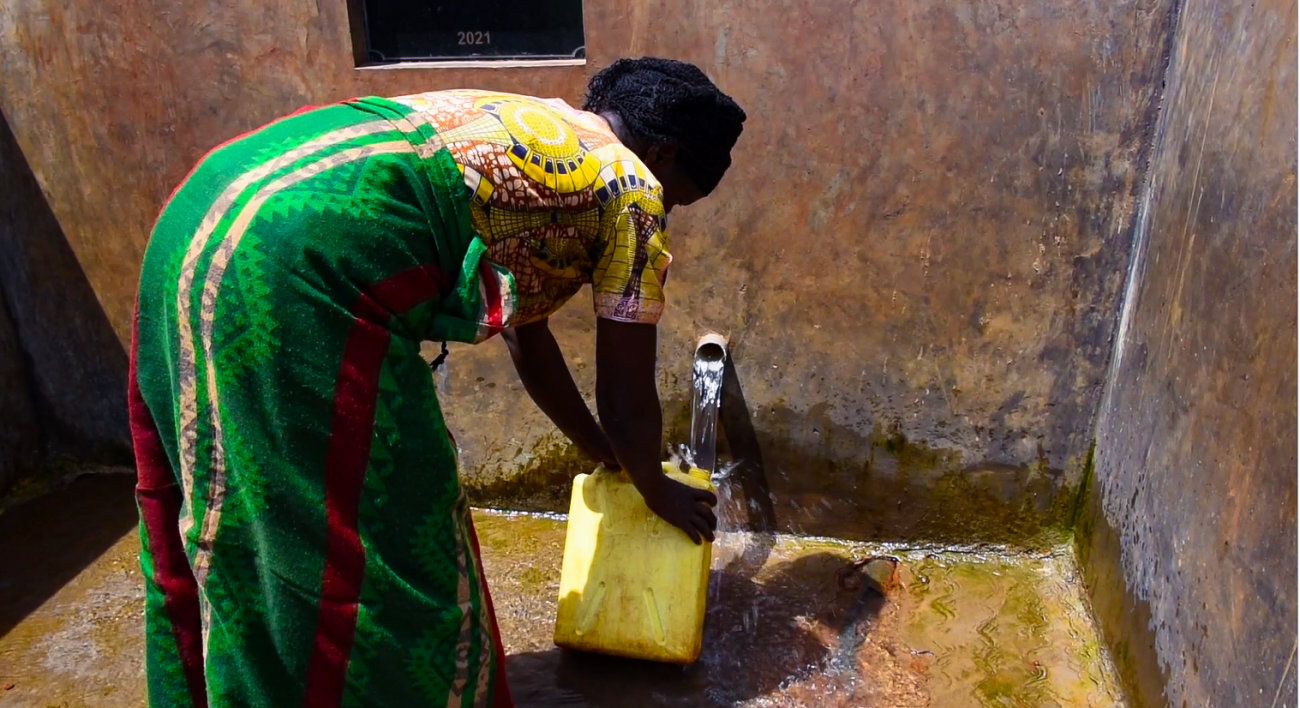Alphonsine Mukeshimana is a farmer and mother of 8 children in Ngoma district, Eastern Rwanda near the Burundi border.
Every day for many years she made a 3-hour journey to fetch water to use at home. The water wasn’t clean.
“My children and I had to fetch very dirty water, which always caused us intestinal worms.” she said.
One day this struggle changed, thanks to the UN’s joint project ‘Rural Women Economic Empowerment (RWEE) implemented by four UN agencies. The Food and Agriculture Organization of the United Nations, UN Women, World Food Programme, and International Fund for Agricultural Development.
FAO as a participating Agency built a spring catchment tap. Now it only takes Alphonsine 30 minutes to get water.
“But since you gave us clean water, we are healthy, we do not suffer from diseases related to dirty water because we now drink pure and clean water.” Said Alphonsine Mukeshimana, farmer.
The spring was initially planned for irrigation, supporting the Nkabikorera cooperative who grow maize and tomatoes. In the dry season, this spring catchment serves nine villages and around 300 people fetch clean water from here daily.
“The leadership of Ngoma district highly thanks FAO and RWEE for the tremendous and impactful activities the project continues to carry out for the betterment of people of our district especially of Jarama sector,” said Nathalie Niyonagira, Mayor of Ngoma District.
“This is what FAO, the UN is all about. To make sure that we add our modest contribution to what can make the lives of rural women conducive to unleashing their potential,” said Gualbert Gbehounou, FAO Rwanda Representative
This project was possible thanks to financial contributions from the government of Sweden through the Swedish Development Cooperation Agency and through the Norwegian Ministry of Foreign Affairs.










